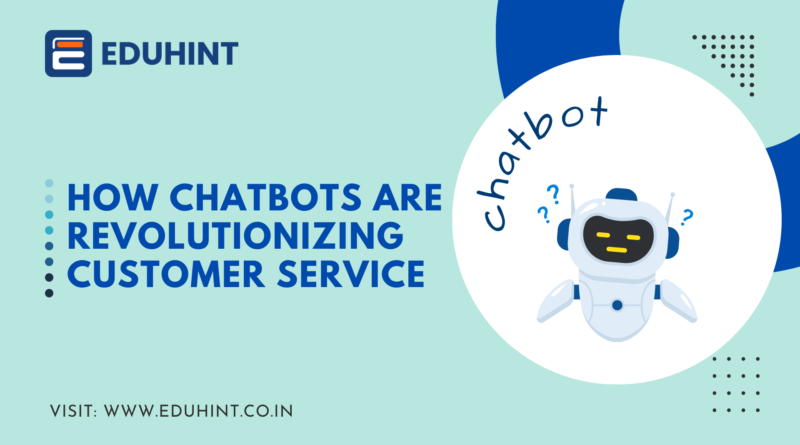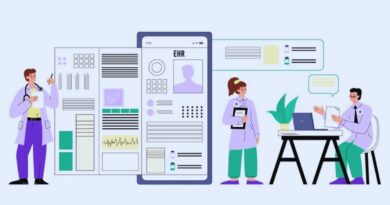4 min readHow Chatbots Revolutionizing Customer Service
Chatbots have become increasingly popular in recent years as a way for businesses to provide customer service. A chatbot is a computer program that can simulate conversation with human users through text or voice interactions. These chatbots can be integrated into a company’s website, mobile app, or social media platforms and can provide a variety of services such as answering frequently asked questions, helping customers with their orders, and even handling complaints. In this article, we will discuss the role of chatbots in customer service and how they are being used to improve the customer experience.
Let’s discuss some advantages of Chatbots.
24/7 Availability
One of the main advantages of chatbots in customer service is their ability to provide 24/7 availability. Customers can interact with a chatbot at any time, regardless of the time of day or day of the week. This means that customers can get help when they need it, without having to wait for a customer service representative to be available. This can be particularly beneficial for businesses that operate on a global scale, as it allows them to provide customer service to customers in different time zones.
High Volume
Chatbots also have the ability to handle a high volume of customer interactions simultaneously. As chatbots do not get tired, they can handle multiple customer interactions at once, allowing businesses to serve more customers in less time. This can be especially useful during peak periods, when call centers may be overwhelmed with customer calls.
Personalized Interactions
Another advantage of chatbots in customer service is their ability to provide personalized interactions. Chatbots can be programmed to understand natural language and respond in a way that is tailored to the specific needs of the customer. This can help to create a more personalized experience for the customer, which can lead to increased customer satisfaction.
Dynamic
Chatbots can also be used to handle a wide range of customer service tasks. From answering frequently asked questions, to helping customers with their orders, to handling complaints, chatbots are able to perform a variety of tasks. This can help to reduce the workload of customer service representatives, allowing them to focus on more complex tasks.
Easy to integrate
Chatbots can also be integrated with other systems, such as CRM (customer relationship management) systems, to provide a more seamless customer service experience. For example, a chatbot can be integrated with a CRM system to access information about a customer’s purchase history, which can be used to make personalized product recommendations.
There are many different chatbot software platforms available, each with their own unique features and capabilities.
Here are a few of popular chatbot software platforms:
Dialogflow: Dialogflow is a Google-owned platform that allows developers to create chatbots for a variety of platforms, including Google Assistant, Facebook Messenger, and Slack. It uses natural language processing and machine learning to understand user input and provide relevant responses. It’s easy to use interface and pre-built integrations make it a popular choice among developers.
Microsoft Bot Framework: The Microsoft Bot Framework is a collection of tools and services that allows developers to create chatbots for a variety of platforms, including Skype, Facebook Messenger, and Slack. It provides a range of features, including natural language understanding, conversation management, and integration with Microsoft Azure services.
Chatbot.io: Chatbot.io is a chatbot development platform that allows developers to create chatbots for a variety of platforms, including Facebook Messenger, WhatsApp, and Telegram. It provides a range of features, including natural language understanding, conversation management, and integration with other tools and services.
ManyChat: ManyChat is a platform that allows businesses to create chatbots for Facebook Messenger. It provides a wide range of features, including pre-built templates, natural language processing capabilities, and the ability to automate customer service tasks.
Conclusion
chatbots are becoming an increasingly popular way for businesses to provide customer service. They have the ability to provide 24/7 availability, handle a high volume of customer interactions, provide personalized interactions, and perform a wide range of customer service tasks. They can also be integrated with other systems to provide a more seamless customer service experience. As technology continues to evolve, the capabilities of chatbots will continue to improve, and they will play an even more important role in the customer service industry.





Pingback: 5 Essential API Integration Strategies to Streamline Your Business Processes